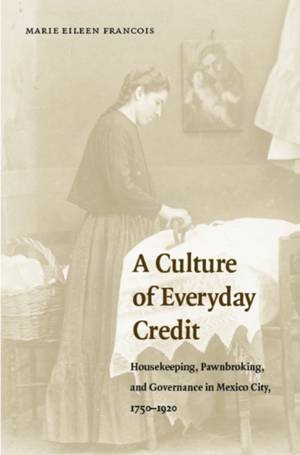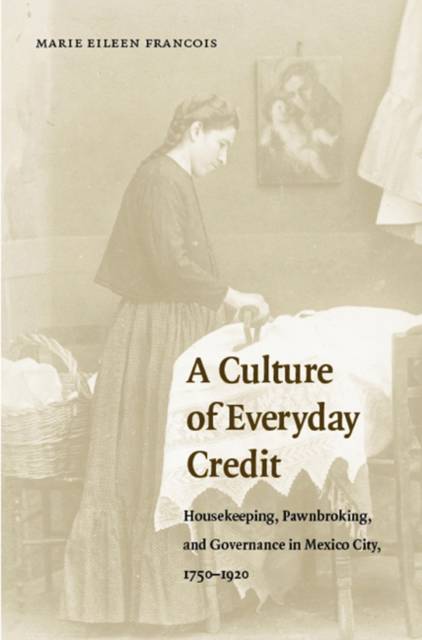
Door een staking bij bpost kan je online bestelling op dit moment iets langer onderweg zijn dan voorzien. Dringend iets nodig? Onze winkels ontvangen jou met open armen!
- Afhalen na 1 uur in een winkel met voorraad
- Gratis thuislevering in België vanaf € 30
- Ruim aanbod met 7 miljoen producten
Door een staking bij bpost kan je online bestelling op dit moment iets langer onderweg zijn dan voorzien. Dringend iets nodig? Onze winkels ontvangen jou met open armen!
- Afhalen na 1 uur in een winkel met voorraad
- Gratis thuislevering in België vanaf € 30
- Ruim aanbod met 7 miljoen producten
Zoeken
A Culture of Everyday Credit
Housekeeping, Pawnbroking, and Governance in Mexico City, 1750-1920
Marie Eileen Francois
€ 41,45
+ 82 punten
Omschrijving
Pawning was the most common credit mechanism in Mexico City in the nineteenth century. A diverse, largely female pawning clientele from lower- and middle-class households regularly secured small consumption loans by hocking household goods. A two-tiered sector of public and private pawnbrokers provided collateral credit. Rather than just providing emergency subsistence for the poor, pawnbroking facilitated consumption by Creole and mestizo middle sectors of Mexican society and enhanced identity formation for those in middling households by allowing them to cash in on material investments to maintain status during lean times. A Culture of Everyday Credit shows how Mexican women have depended on credit to run their households since the Bourbon era and how the collateral credit business of pawnbroking developed into a profitable enterprise built on the demand for housekeeping loans as restrictions on usury waned during the nineteenth century. Pairing the study of household consumption with a detailed analysis of the rise of private and public pawnbroking provides an original context for understanding the role of small business in everyday life. Marie Eileen Francois weighs colonial reforms, liberal legislation, and social revolution in terms of their impact on households and pawning businesses. Based on evidence from pawnshop inventories, censuses, legislation, petitions, literature, and newspapers, A Culture of Everyday Credit portrays households, small businesses, and government entities as intersecting arenas in one material world, a world strapped for cash throughout most of the century and turned upside down during the Mexican Revolution. Marie Eileen Francois is an associate professor of history at Auburn University.
Specificaties
Betrokkenen
- Auteur(s):
- Uitgeverij:
Inhoud
- Aantal bladzijden:
- 416
- Taal:
- Engels
- Reeks:
Eigenschappen
- Productcode (EAN):
- 9780803269231
- Verschijningsdatum:
- 1/12/2006
- Uitvoering:
- Paperback
- Formaat:
- Trade paperback (VS)
- Afmetingen:
- 160 mm x 230 mm
- Gewicht:
- 589 g

Alleen bij Standaard Boekhandel
+ 82 punten op je klantenkaart van Standaard Boekhandel
Beoordelingen
We publiceren alleen reviews die voldoen aan de voorwaarden voor reviews. Bekijk onze voorwaarden voor reviews.











